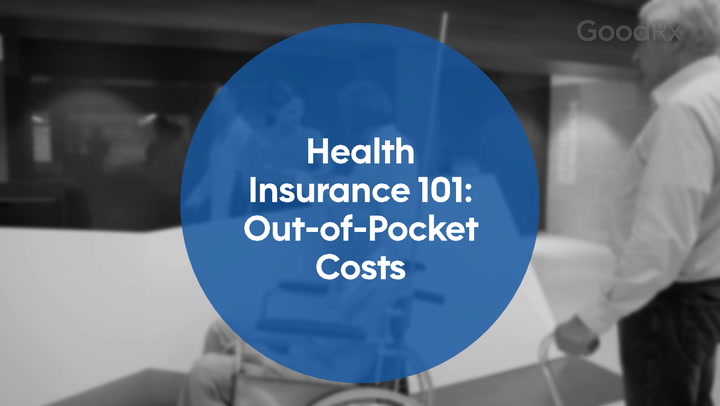
What Is Prior Authorization? A Look at the Process and Tips For Approval
Key takeaways:
Prior authorizations are required by insurance companies for some medications. This includes those that may have less expensive alternatives.
The prior authorization process can take anywhere from a couple days to a few weeks. Once approved, the prior authorization lasts for a defined timeframe.
You may be able to speed up a prior authorization by filing an urgent request. If you can’t wait for approval, you may be able to pay upfront at your pharmacy and submit a reimbursement claim after approval.
Table of contents
Have you ever walked into the pharmacy and been told that your prescription requires a prior authorization? But your healthcare professional prescribed something for you, and you brought in your prescription — shouldn’t that be enough? What exactly is a prior authorization, and why can’t you just pick up your prescription?
Here is what you need to know about the prior authorization process.
What is a prior authorization?
Prior authorization is an approval of coverage from your insurance company — not your healthcare professional. It’s a restriction put in place to determine whether or not they will pay for certain medications. Many people casually refer to it as a PA.
SHINGRIX (Zoster Vaccine Recombinant, Adjuvanted) is now $0 for almost everyone*
Get SHINGRIX at the pharmacy or in-network doctor’s office today. 98% of privately insured people pay $0 and all Medicare Part D beneficiaries pay $0 at the pharmacy.
Prescribing Information
*Coverage and cost may vary and are subject to change without notice. Reimbursement decisions are made by individual insurance plans.


SHINGRIX is an FDA-approved vaccine for the prevention of shingles (herpes zoster) in adults 50 years and older. SHINGRIX is not used to prevent chickenpox.
• You should not receive SHINGRIX if you are allergic to any of its ingredients or had an allergic reaction to a previous dose of SHINGRIX
• An increased risk of Guillain-Barré syndrome (severe muscle weakness) was observed after vaccination with SHINGRIX
• Fainting can happen after getting injectable vaccines, including SHINGRIX. Precautions should be taken to avoid falling and injury due to fainting
• The most common side effects are pain, redness, and swelling at the injection site, muscle pain, tiredness, headache, shivering, fever, and upset stomach
• SHINGRIX was not studied in pregnant or nursing women. Tell your healthcare provider if you are pregnant, plan to become pregnant, or are breastfeeding
• Vaccination with SHINGRIX may not protect all individuals
• Ask your healthcare provider about the risks and benefits of SHINGRIX. Only a healthcare provider can decide if SHINGRIX is right for you
You are encouraged to report vaccine adverse events to the US Department of Health and Human Services. Visit www.vaers.hhs.gov to file a report, or call 1-800-822-7967.
For US audiences.
Trademarks are property of their respective owners.
©️2024 GSK or licensor.
PMUS-SGXWCNT240015 May 2024
Produced in the USA.
GoodRx Health information and resources are reviewed by our editorial staff with medical and healthcare policy and pricing experience. See our editorial policy for more detail. We also provide access to services offered by GoodRx and our partners when we think these services might be useful to our visitors. We may receive compensation when a user decides to leverage these services, but making them available does not influence the medical content our editorial staff provides.
A prior authorization doesn’t affect cash payment for prescriptions. Plus, it’s only required on those prescriptions when billed through insurance. So if you’re uninsured or if you decide to pay in cash, you won’t need to worry about getting prior authorization.
What types of prescriptions require prior authorizations?
Insurance companies will most likely require prior authorizations for the following products:
Brand-name drugs that have a generic available
Drugs that are only intended for certain age groups or health conditions
Drugs used only for cosmetic reasons
Drugs that are neither preventative nor used to treat non-life-threatening conditions
Drugs (including those prescribed at higher than standard doses) that may have adverse health effects, possibly dangerous interactions, and/or risks for abuse or misuse
Drugs that aren’t covered by your insurance but deemed medically necessary by your healthcare professional
In many cases, prior authorizations are intended to ensure medication use is appropriate and cost-effective. If you think your prescription may require a prior authorization, contact your insurer directly to confirm.
What should you expect if your prescription needs a prior authorization?
If your medication requires a prior authorization, the pharmacy will notify the healthcare professional who wrote the prescription. Your prescriber will proceed to give the necessary coverage information to your insurance company. Your insurer will then decide whether or not to cover your medicine.
Keep in mind: If you’re approved, a prior authorization only lasts for a set period of time. A prior authorization can expire. You will likely have to re-apply again for future fills once this happens.
How long does a prior authorization take for medication?
There’s no set timeframe for how long a prior authorization for medication typically takes.
Many prior authorization requests are processed in 1 to 3 business days, especially for standard medications with properly completed paperwork. Some insurance companies may take up to 5 to 7 days as part of their normal process. Urgent requests — like those for serious or life-threatening conditions — may be reviewed within a day. But for complex or specialty medications, it can end up taking a few weeks, especially if more information is needed or if an appeal is involved after a denial.
Increasing restrictions over time: GoodRx research shows that prescription insurance plans are now covering fewer medications overall and placing more restrictions on those they do cover.
Assessing your options: If your insurance won’t cover your prescription, here are some tips and tricks to consider.
Did you receive a step therapy denial? Read our guide to what step therapy is and how you can try to get your non-preferred medication covered.
The time it takes to process a prior authorization can vary for several reasons. Here are some of the most common ones:
Insurance company requirements: Each insurer has its own review process and timeline. Some may also ask for more documentation than others.
Response and follow-up time: Delays can happen if your prescriber takes time to submit an initial request and/or follow-up with the insurer.
Paperwork issues: Missing or incomplete forms can lead to delays.
Type of medication: High-cost or specialty medications often require extra scrutiny, which can slow things down.
Submission method: Electronic prior authorization requests are now standard in the U.S. and are typically faster than fax or mail, though some clinics and pharmacies still use these older communication methods.
What can you do if your prior authorization is denied?
Unfortunately, your insurer may deny your prior authorization request. If this happens, you may be left on the hook for the full out-of-pocket price of your medication.
Read more like this
Explore these related articles, suggested for readers like you.
If you believe that your prior authorization was incorrectly denied, submit an appeal. Appeals are the most successful when your prescriber deems your treatment is medically necessary or there was a clerical error leading to your coverage denial. One of the best ways to build your appeal case is to get your healthcare professional’s input. Ask them about any backup documentation or medical notes that could help you prove your prescription is medically necessary.
If that doesn’t work, your prescriber may still be able to help you. Some tricks to help you save include:
Getting a prescription for a higher-dose pill, which you can potentially cut in half to save on cost
Filling a 90-day supply, which can be cheaper than a 30-day supply
Getting free samples from your prescriber
Additionally, if you’re filling an expensive brand-only medication, look for any manufacturer copay cards, patient assistance programs, and GoodRx coupons that can help you save. And don’t forget to shop around.
Can you speed up the prior authorization process?
Maybe. You may be able to speed up the process by speaking with your insurer directly. In some cases, you may be able to submit an urgent request for a faster decision.
If you need your medication urgently, some pharmacies may let you purchase your prescription with a credit card as you wait for prior authorization and reimburse you if your authorization is approved within a week. While you’re taking a risk, if you received prior authorization for the same drug in the past, it’s likely it will be approved again.
Frequently asked questions
Insurance companies use prior authorizations to make sure a medication is a safe, effective, and appropriate option for your condition. It’s a way to confirm that the treatment is medically necessary and helps avoid unnecessary costs. In some cases, your insurance may want you to try a lower-cost alternative before covering a brand-name, non-preferred, and/or specialty product. Prior authorizations can also help prevent misuse or overuse of certain medications. Overall, it’s one of the ways insurers try to balance quality care with cost.
Prior authorizations can take time because your prescriber has to submit paperwork and your insurance company needs time to review it. This process can take a few days — or even longer — especially if your insurer asks for more information or doesn’t classify the request as urgent. Delays can also happen when there’s a high volume of requests or when the process isn’t fully electronic. If you need the medication quickly, you or your prescriber can ask for an urgent request to help speed things up.
The bottom line
Your insurance company may require a prior authorization before covering your prescription. This is done in some cases to make sure that a medication is appropriate for your care. It also helps to make sure it’s the most cost-effective option. There’s no set answer to how long a prior authorization typically takes for medication; it can range from a couple days to a few weeks.
If you don’t get approval, you may be responsible for the cost of the medication, but you can appeal the decision. Your pharmacist may also know some tips to help make the medication more affordable for you, such as by connecting you to manufacturer copay cards, patient assistance programs, or other discounts (such as GoodRx).
Why trust our experts?



References
Berg, S. (2023). What doctors wish patients knew about prior authorization. American Medical Association.
Centers for Medicare and Medicaid Services. (2024). CMS interoperability and prior authorization final rule CMS-0057-F.
CoverMyMeds. (n.d.). ePA for any drug and any payer in one connected platform.
Pawlak, M., et al. (2023). Why do I need a prior authorization for my medication? SafeMedication.





























